حضور مخدوم العالمین و مخدوم العارفین ،بادشاہ دو جہاں، ختم اللہ الارواح، سلطان الاولیاء حضور سیدنا مخدوم علاؤ الدین علی احمد صابر کلیری علیہ الرحمہ
Mehfil-e sama
Qawwali takes place in the context of a mehfil-e samāʿ, a “gathering for [spiritual] listening.” The most significant of these gatherings take place in Sufi shrines on the anniversary of the death of the saint who is associated with the shrine. Lesser mehfil-e samāʿ are held throughout the year on Thursdays, when Muslims remember the deceased, or on Fridays, the day of prayer. Qawwali performances may also be arranged to offer spiritual nourishment on other special occasions.
The Indian composer and Persian-language poet Amīr Khosrow (1253-1325) is the popularly acknowledged creator of qawwali, and his works form the foundation of the traditional qawwali repertoire. Indeed, most traditional performances of qawwali both open and close with songs that are attributed to him; the closing song, known as rang.
Persian (Farsi) devotional verse, not only by Amīr Khosrow but also by such poets as Rūmī and Ḥāfeẓ, is the source of most of the qawwali repertoire, although there also are many texts in Punjabi and Hindi.
many qawwali songs praise Muslim teachers, saints, or Allah. However, the bulk of the repertoire addresses spiritual love in terms of worldly love and intoxication. To the unaccustomed listener, these songs may seem antithetical to the teachings of orthodox Islam, but qawwals and their audiences readily recognize the imagery as a metaphorical expression of the euphoria brought by communion with the divine spirit.
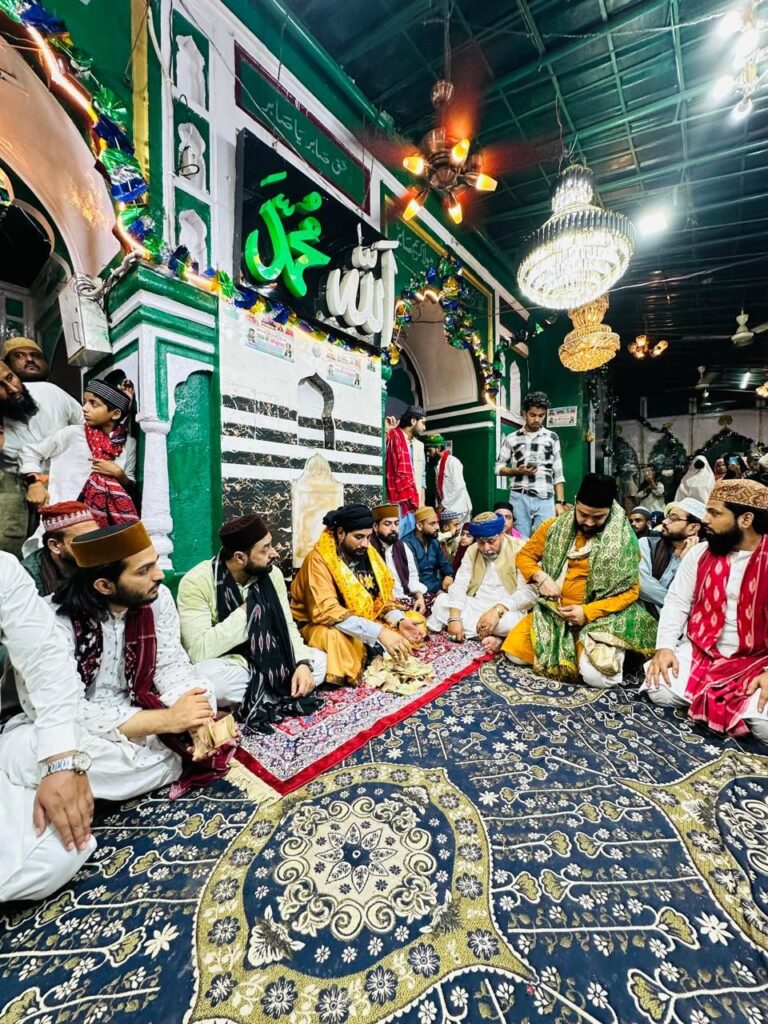
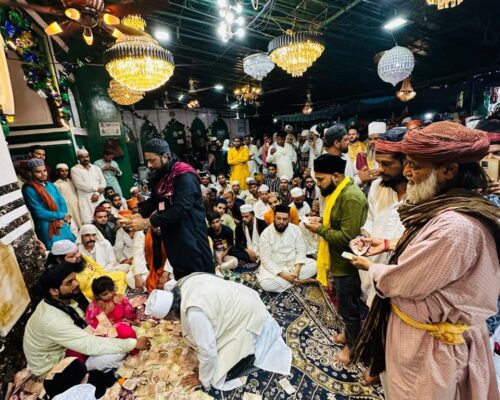
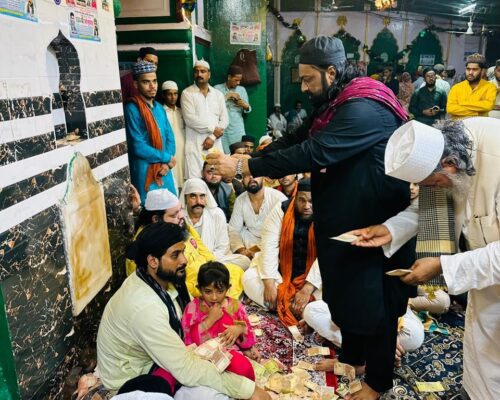
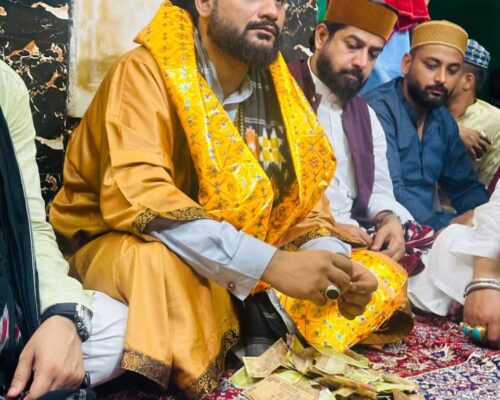
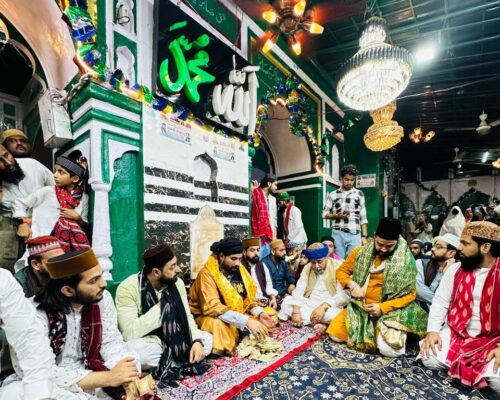
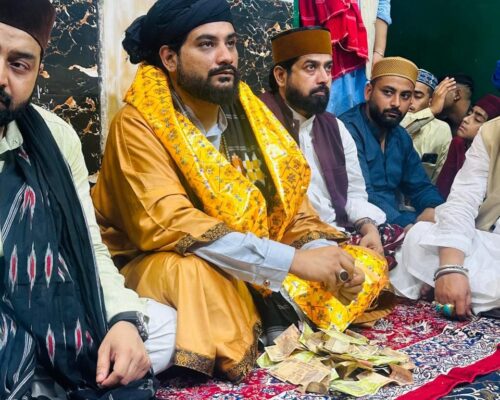
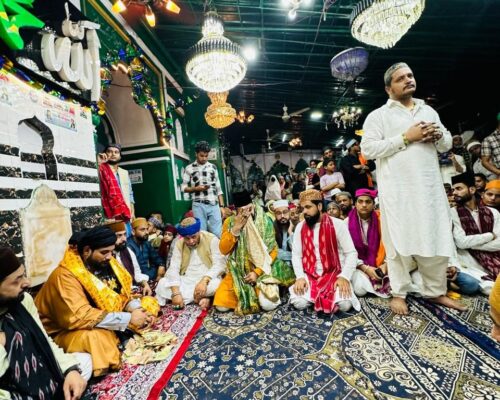
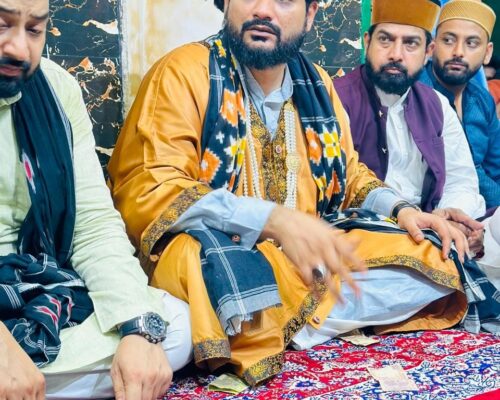
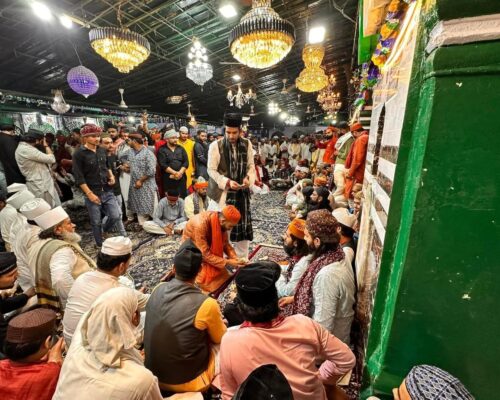
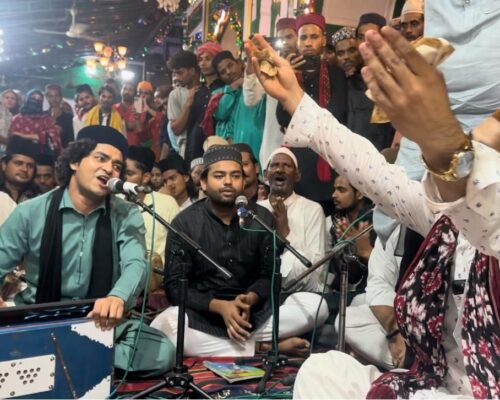
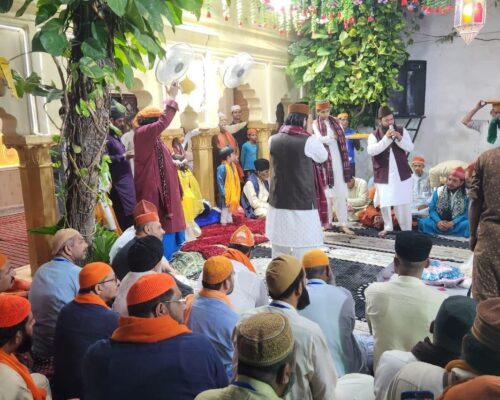
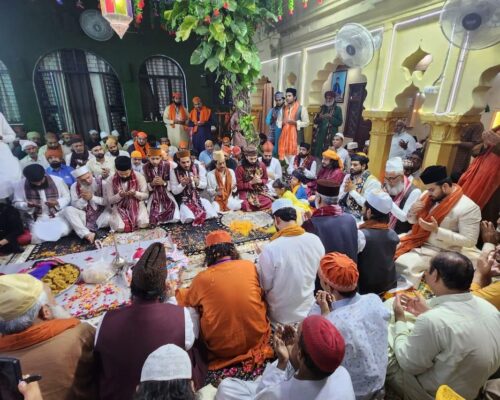
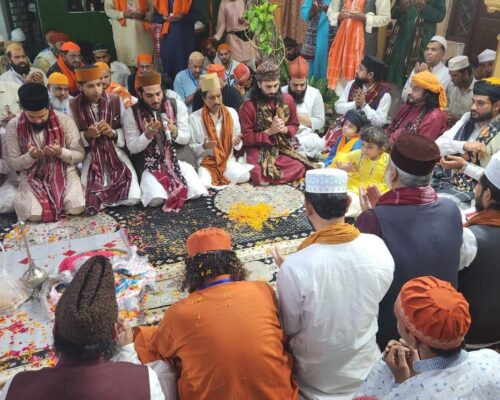
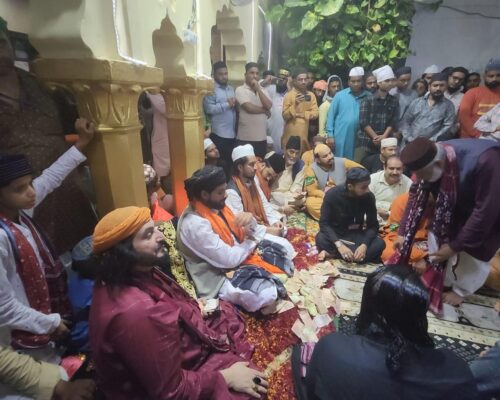

Post & Update's
A sanctuary of peace and spirituality, where devotees have sought blessings for centuries. The Dargah stands as a testament to the enduring legacy of Hazrat Makhdoom Alauddin Ali Ahmed Sabir Piya.
Powered by sajjada nashin Dargah Sabir pak
Design by Renovation Enterprise
"The path to the Divine is through love, service, and devotion."
Copyright © 2024 kaliyar sharif sabir piya all rights reserved
Renovation Enterprise
"मोहब्बत करने वाला हर दिल यही तमन्ना रखता है कि उसे औलिया की चौखट पर ख़िदमत का शर्फ़ हासिल हो। मगर ये भी सच है कि महबूब खुद जिसे चाहे, उसी को ये नसीब नसीब होता है। मेरे बुज़ुर्ग — मरहूम हज़रत नूर मोहम्मद ख़ान साहब और उनके साहबज़ादे मरहूम ज़ाहिद ख़ान साहब — मख़दूम साबिर कलियारी रहमतुल्लाह अलैह से बेपनाह मुहब्बत करते थे। आज यही करम मुझ पर हुआ कि मख़दूम पाक ने मुझे अपनी चौखट की ख़िदमत का ज़रिया बनाया। ये मेरा फ़ख़्र है, मेरी क़िस्मत का नूर है। मैंने इस वेबसाइट पर पूरी सच्चाई, इख़लास और अदब के साथ काम किया है। अगर मुझसे कोई कोताही हो गई हो, तो बख़्श देना। और इल्तिजा है कि मख़दूम का ये करम हमेशा मुझ गुनहगार और मेरे घराने पर बना रहे।"
